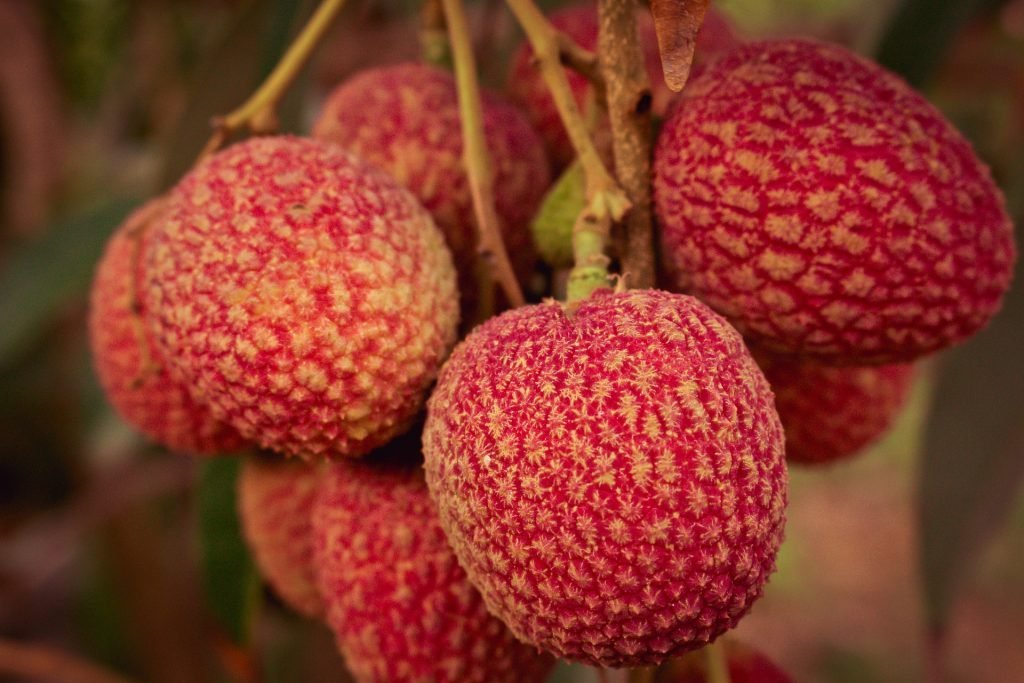Lychee: nutritional properties, benefits and contraindications

Lychee is a tropical fruit that can have several health benefits if included regularly in the guideline. It has several antioxidants inside that will neutralize the production of free radicals.
In addition, it is excellent from the organoleptic point of view. It is native to southern China and grows on a tree that can reach 12 meters in height. Its shell is pink and rough, and the pulp is white.
Before starting, it should be noted that the presence of vegetables in the diet is recommended by most nutrition experts. These foods are a source of high-quality micronutrients and antioxidant phytochemicals. Thanks to this, alterations in the physiology of the internal environment can be prevented, which will ensure the maintenance of a good state of health over the years.
Table of Contents
Benefits of lychees
First of all, it is important to mention that lychees are a source of vitamin C, a nutrient that has been shown to enhance immune function, both innate and adaptive. It helps to reduce the incidence of infections, which will result in greater well-being. Even in the event of illness, maintaining an optimal level of vitamin C will allow more precise symptom control , with less intensity of the signs.
On the other hand, lychees are capable of providing a significant amount of folic acid. This element is essential especially for pregnant women. During pregnancy, its requirements increase.
In fact, if the needs are not met, the risk of the fetus suffering malformations skyrockets. According to a study published in BMC Medicine , supplementation is crucial at this stage of life.
It should be noted that thanks to the presence of vitamin C inside the lychees, the absorption of some minerals, such as iron , can be enhanced . This binomial will help reduce the incidence of anemia, a pathology that causes chronic tiredness and fatigue. It is always better to bet on prevention, since once it develops normally it is expensive to restore the proper functioning of the physiology.
We must not forget either that the antioxidants that lychees provide could help reduce the incidence of various complex pathologies. According to research published in the European Journal of Medicinal Chemistry , the regular intake of phytochemicals manages to block the formation of free radicals and their subsequent accumulation in the body’s tissues. In this way, alterations in the homeostasis of the internal environment are prevented.
Nutritional value of lychees
Each unit of lychee provides about 6 calories. 1.5 grams are simple type carbohydrates and the protein and fat content is practically residual. On the other hand, lychee is a source of several micronutrients. Vitamin C, potassium and some B vitamins, such as folic acid, stand out above the rest .
Being so low in energy, it is a perfect fruit to include in the context of a hypocaloric diet with the aim of losing weight. Now, it is always advisable to be somewhat careful with sugars in this kind of situation.
Although those of the fruit are not considered particularly harmful, an accumulation of them in the body could lead to the development of diseases such as non-alcoholic fatty liver.
How to consume lychees?
In general, lychees are usually consumed naturally, in their fresh form. It is enough to remove the shell that covers them to be able to taste their pulp. In addition, it is possible to include these fruits in different dessert and smoothie recipes .
For example, it is common to prepare a smoothie with several lychees and water or a vegetable drink, being able to sweeten it at the end with some artificial sweetener to further improve its organoleptic characteristics.
Lychee, a very healthy fruit
As you have seen, the inclusion of lychees in the regular diet is considered very positive for health. These exotic foods are a source of essential nutrients that help the body work efficiently, thus preventing the development of diseases over the years. However, it will be decisive to include them in the context of a varied guideline to avoid deficits that condition the state of homeostasis.
Finally, remember that priority must be given to seasonal fruits. Normally, their nutritional value is higher. Likewise, its organoleptic characteristics will be enjoyed even more. Of course, there is the alternative of freezing these foods at their optimum point of maturation to consume them later. They will not lose properties due to this and their useful life will be extended.








